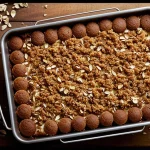UK Technology Shaping the Retail Landscape
Emerging UK retail technology is fundamentally transforming the retail sector, driving efficiency and enhancing customer engagement. Technological advancements in UK retail have led to an unprecedented shift in how businesses operate—ranging from inventory management to customer interactions. These changes are underpinned by increased adoption of digital tools aimed at streamlining retail processes and delivering personalised experiences.
A key driver for tech adoption among UK retailers is the growing demand for seamless and convenient shopping experiences. Retailers are investing heavily in technologies such as AI, automation, and contactless payments to meet rising consumer expectations. This focus on innovation supports a broader digital transformation, allowing companies to remain competitive within a rapidly evolving sector.
This might interest you : What Challenges Are Shaping the Future of UK Technology?
Notable trends within the UK retail technology landscape include the integration of omnichannel approaches and the use of immersive technologies like AR and VR. These trends highlight retailers’ commitment to blending physical and digital experiences, ensuring customers receive consistent service no matter the shopping channel. Collectively, these technological advancements are shaping a more dynamic and responsive retail sector in the UK.
Artificial Intelligence and Personalisation in Retail
Artificial Intelligence (AI) in UK retail is rapidly becoming a cornerstone for enhancing the digital customer journey. AI enables retailers to deliver highly personalised experiences by analysing vast amounts of consumer data in real time. This capability allows businesses to anticipate individual preferences, recommend products, and tailor marketing campaigns effectively.
In parallel : How are Emerging Technologies Revolutionizing the UK’s Healthcare System?
One clear advantage of AI in UK retail is the use of data analytics to refine retail personalisation. By gathering insights from customer behaviour, purchase history, and browsing patterns, retailers can create targeted promotions that increase engagement and conversion rates. For example, British grocers implement AI algorithms to predict consumer favourites, ensuring popular items are stocked proactively to meet demand.
The growing role of AI in UK retail goes beyond personalisation; it optimises the entire customer journey digitally. From chatbots providing instant support to dynamic pricing models adjusting in response to real-time market trends, AI-driven solutions uplift service quality and operational efficiency. These technological advancements in UK retail collectively reinforce customer satisfaction and loyalty, making AI an indispensable tool within the sector transformation.
Robotics and Automation Revolutionising Store Operations
Robotics in retail are rapidly transforming retail process efficiency across the UK. Automated systems streamline supply chain operations by managing inventory, sorting, and packing at speeds unattainable by manual labour. This technological advancement reduces errors and accelerates fulfilment, ensuring products reach store shelves or customers faster.
Automation technology also affects the retail workforce by automating repetitive tasks, enabling employees to focus on higher-value roles such as customer service and management. Although this shift may raise workforce concerns, it drives cost efficiency and improves overall store productivity. For example, several UK automated warehouses use robots to navigate aisles and handle parcels, significantly cutting down order processing times.
The implementation of robotics in retail enhances both back-end operations and in-store experiences by integrating with other digital systems. These innovations contribute to a more responsive retail supply chain, supporting the wider retail sector transformation taking place across the UK.
Cashless and Contactless Payments Enhancing Shopping Convenience
Cashless payments UK have become a cornerstone of retail payment innovation, revolutionising how customers transact in stores. Contactless shopping methods, such as tap-to-pay cards and mobile wallets, significantly reduce checkout times, improving overall customer satisfaction. The adoption of these technologies is driven by a demand for faster, hygienic, and more convenient payment options that align with modern shopping habits.
Consumer adoption rates for contactless payments in the UK have soared, with many shoppers preferring this method for its speed and simplicity. As a result, UK retailers are investing heavily in upgrading point-of-sale systems to support a variety of cashless payments UK options. This investment enables a smoother transaction process, reduces queues, and minimises manual errors in payment handling. For example, major national supermarket chains have implemented contactless shopping check-out technologies that expedite the purchasing experience while maintaining secure payment processing.
The benefits of retail payment innovation extend beyond convenience. Contactless shopping supports operational efficiency by easing payment processing workflows and lowering the risks associated with handling cash. Additionally, the integration of digital wallets facilitates personalised promotions and loyalty programs, further enriching the customer experience. Overall, embracing cashless payments UK enables retailers to meet evolving consumer expectations and drive growth in an increasingly competitive retail sector transformation.
Omnichannel and AR/VR Experiences Redefining Customer Journeys
The rise of omnichannel retail is reshaping how customers engage with UK retailers, combining physical stores, online platforms, and mobile applications into a seamless shopping experience. This approach allows shoppers to switch effortlessly between channels — for example, browsing products on a website before trying items in-store or purchasing through a mobile app with in-store pickup. Retailers adopting omnichannel strategies benefit from increased customer retention as consumers value this flexibility.
AR/VR in UK retail plays a significant role in enhancing immersive shopping experiences, allowing customers to visualise products in realistic settings. For instance, augmented reality apps enable users to preview furniture items in their homes or virtually try on clothing without physically visiting stores. This technology reduces hesitation in purchase decisions and drives engagement by making digital interactions more tangible and enjoyable.
British fashion retailers exemplify the practical application of AR/VR by offering virtual fitting rooms, which help shoppers explore sizes and styles remotely. This use of immersive technology not only enriches the digital customer journey but also decreases return rates, addressing both customer satisfaction and cost efficiency. In this evolving retail landscape, integrating immersive shopping experiences with omnichannel retail sets UK retailers apart in delivering personalized, convenient, and engaging interactions.
Business Impacts: Efficiency, Loyalty, and Competitive Edge
In the evolving UK retail landscape, improving retail efficiency is a primary outcome of technological adoption. Automation and AI-driven systems optimise inventory management and supply chain workflows, enabling retailers to respond rapidly to market demands. This increased operational efficiency reduces costs and minimises errors, providing a solid foundation for scale and growth.
Strengthening customer loyalty UK is closely tied to enhanced personalisation and seamless service delivery. Technologies that enable tailored marketing campaigns and real-time customer insights deepen engagement and encourage repeat business. By consistently meeting or exceeding consumer expectations, retailers build trust and foster long-term relationships that differentiate them from competitors.
Achieving a competitive advantage retail in the UK requires both innovation and agility. Businesses leveraging emerging technologies can adapt quickly to changing consumer behaviours and market trends, maintaining relevance in a crowded marketplace. This strategic use of technology not only drives immediate efficiency gains but also positions retailers to capitalize on future opportunities, ensuring sustainable success amid sector transformation.
Future Outlook and Ongoing Innovation in UK Retail Technology
The future of UK retail is set to be shaped by continuous innovation trends that build upon current technological foundations. Experts in retail technology foresee expanding use of AI and automation, which will drive predictive analytics and smarter inventory solutions. These advancements will enable retailers to adapt even more swiftly to changing consumer demands and market conditions.
Among upcoming innovations, integration of Internet of Things (IoT) devices is expected to enhance real-time tracking and personalised marketing efforts within stores. This will complement existing digital platforms, creating a more cohesive and responsive retail environment. Additionally, sustainable technologies are gaining traction, with an emphasis on reducing environmental impact while maintaining efficiency.
Retail technology experts highlight potential challenges such as data privacy concerns and the need for skilled workforce adaptation. However, these issues are balanced by opportunities to harness emerging technologies for improved customer experiences and operational agility. Overall, ongoing innovation in UK retail technology promises to reinforce the sector’s transformation, keeping it competitive on a global scale.






